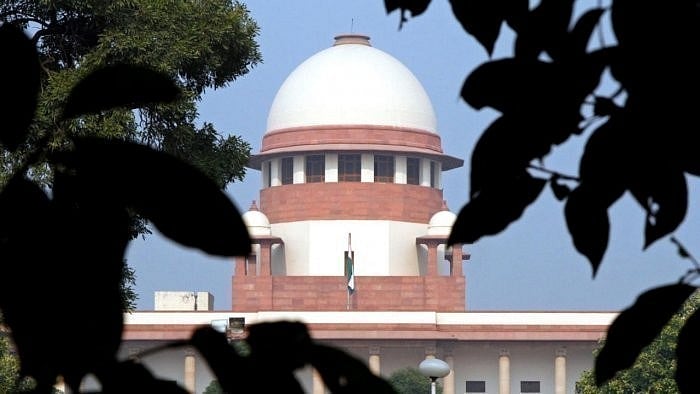
The Supreme Court of India.
Credit: PTI File Photo
New Delhi: The Supreme Court has said political vendetta by itself is not enough for the grant of anticipatory bail since the courts cannot ignore other materials on record constituting a prima facie case as alleged by the State.
A bench of Justices J B Pardiwala and R Mahadevan emphasised that it is only when the court is convinced more than prima facie that the allegations are frivolous and baseless, that the court may bring into the element of political vendetta into consideration for the purpose of considering the plea of anticipatory bail.
The court then may attribute frivolity in the entire case to political bias or vendetta, the bench said.
In its decision on May 16, 2025, the bench rejected a plea for anticipatory bail by ex Officer on Special Duty P Krishna Mohan Reddy and former Secretary in the CMO K Dhananjaya Reddy in a case related to Andhra Pradesh liquor scam involving alleged misappropriation of public exchequer to the tune to more than Rs 3,000 crore.
The court opined anticipatory bail to accused in cases of the present nature would greatly harm the investigation and would impede the prospects of unearthing of the ramifications involved in the conspiracy and public interest also would suffer as a consequence.
Senior advocates Mukul Rohatgi, Sidharth Luthra and Siddharth Aggarwal, appearing for the Andhra Pradesh government, opposed the plea, claiming more than a prima facie case against the petitioners. They said the investigation is at a very crucial stage and the investigating agency may seek custodial interrogation.
Agreeing to the submission, the court said, it should not come in the way of the investigating agency at this point of time and the investigation should be permitted to proceed further.
"Custodial interrogation is qualitatively more elicitation oriented than questioning a suspect who is well ensconced with a favourable order under Section 438 CrPC," the bench pointed out in its 36-page order released on May 19, 2025.
In corruption cases concerning influential persons, effective interrogation of the suspect is of tremendous advantage in disinterring many useful information and also materials which are likely to be concealed, the court emphasised.
"Success in such interrogation would elude if the suspected person knows that he is well protected and insulated by a pre-arrest bail order during the time he is interrogated. Very often interrogation in such a condition would reduce to a mere ritual," the bench added.
Senior advocate A M Singhvi and Vikas Singh for the petitioners contended they are now retired but due to political vendetta and bias, they have been named in the alleged crime.
They said they have been cooperating with the investigating agency, and their statements have been recorded after the interrogation.
They also assured to cooperate further with the investigating agency till the charge-sheet is filed. They accused the investigating agency of adopting dubious methods and tactics for the purpose of extracting confessional statements from different witnesses by adopting third degree methods.
Rejecting their challenge, the bench, however, said the High Court remained alive and very rightly to the apprehension of the investigating agency that the petitioners would influence the witnesses, considering particularly the high position they all held at one point of time.
The court declined to exercise its discretion for the grant of anticipatory bail.
To the petitioners contention of vendetta and bias, the bench said, "The courts should keep one thing in mind, more particularly, while considering the plea of anticipatory bail that when two groups of rival political parties are at war which may ultimately lead to litigations, more particularly, criminal prosecutions there is bound to be some element of political bias or vendetta involved in the same. However, political vendetta by itself is not sufficient for the grant of anticipatory bail."
Both the petitioners were subsequently arrested and remanded to custodial interrogation.
